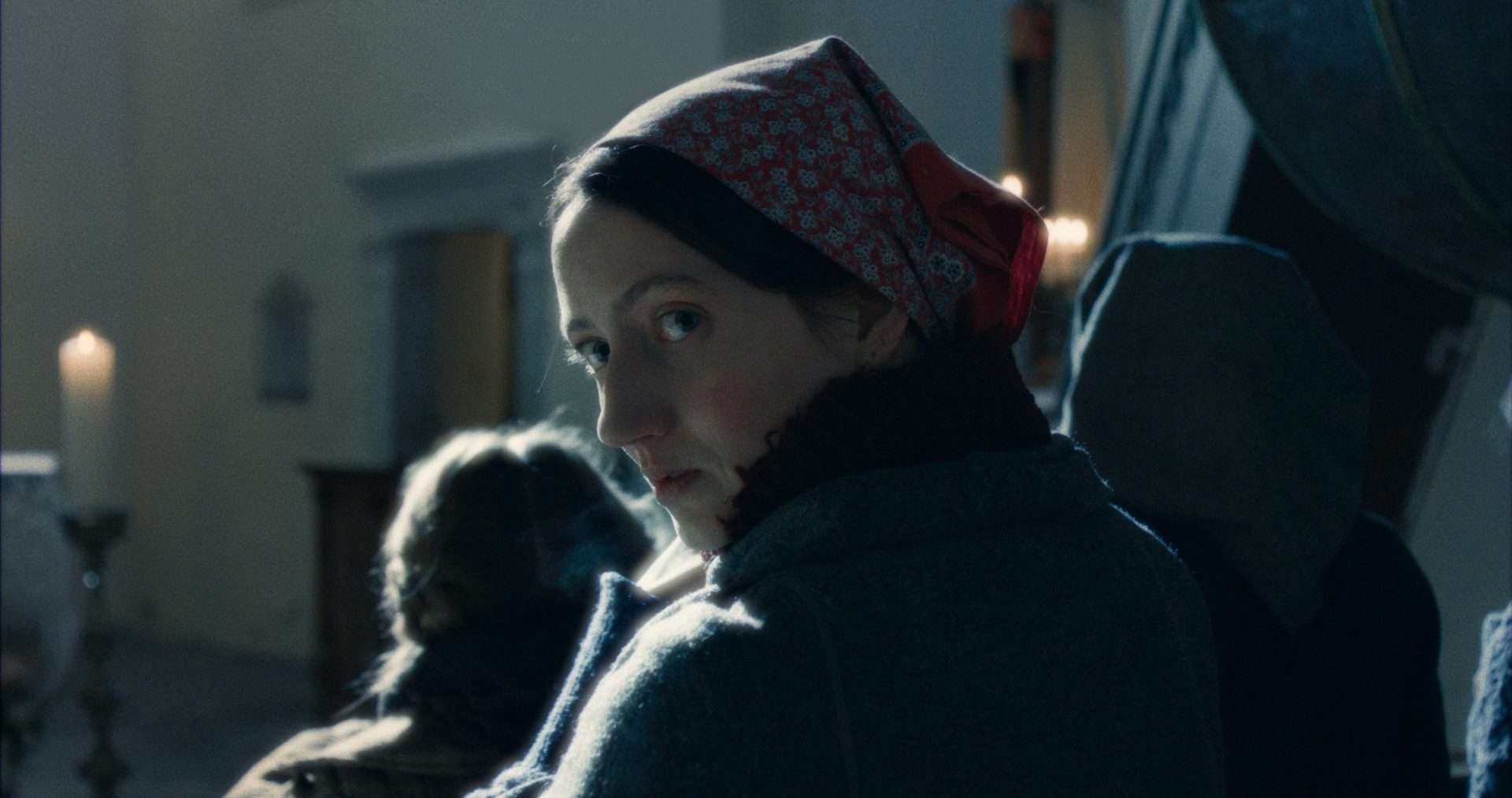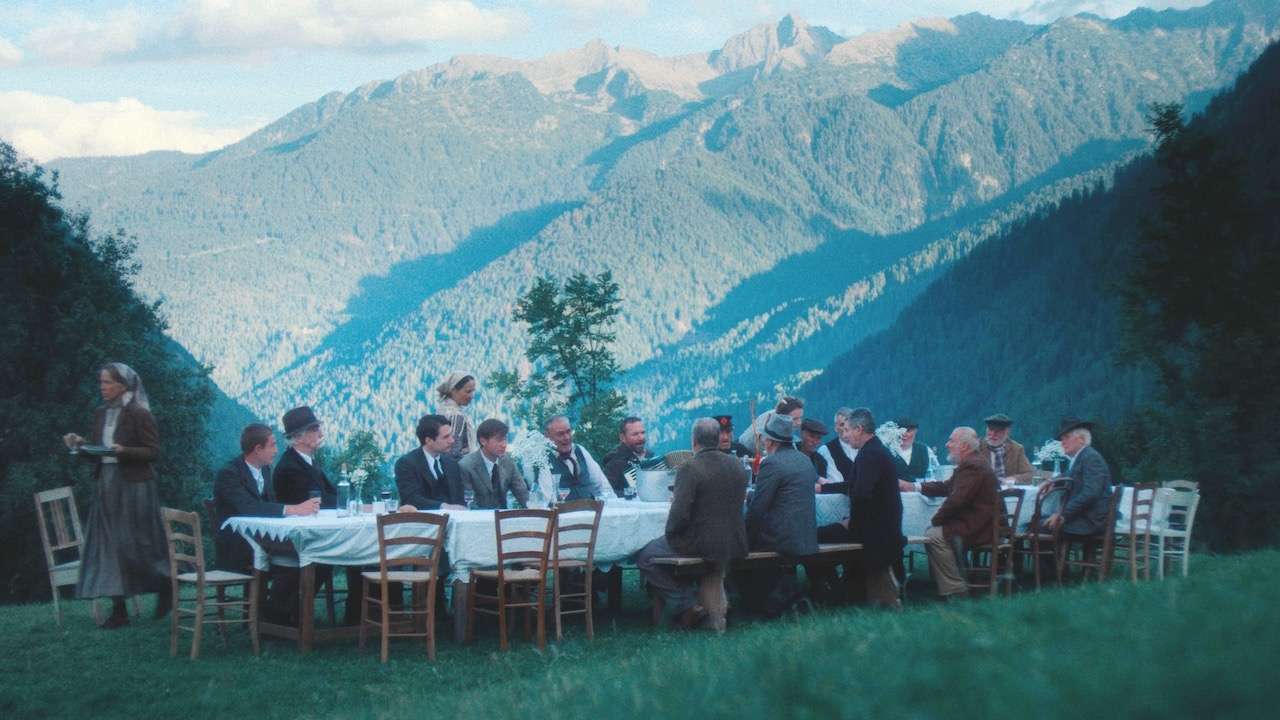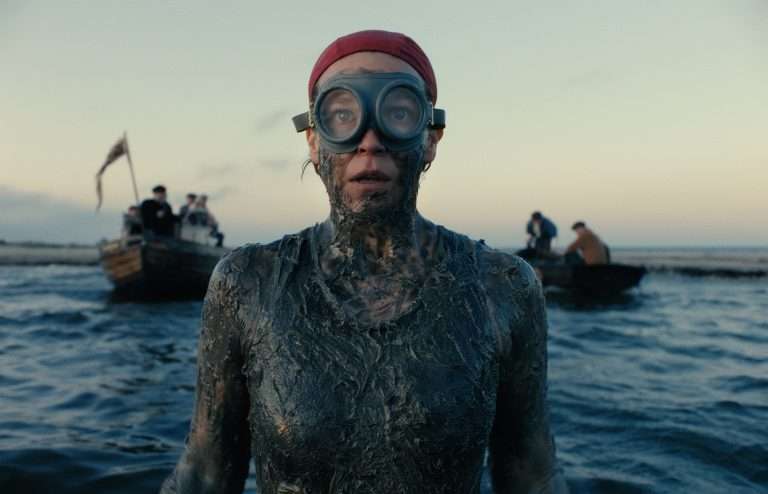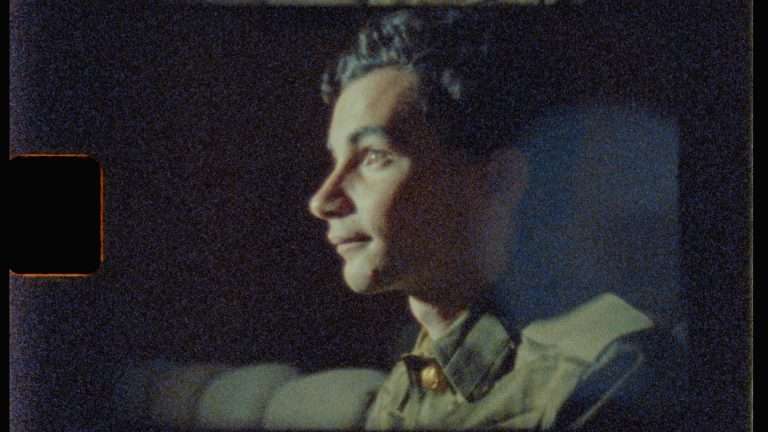Maura Delpero’s gorgeous historical drama “Vermiglio” may take place amidst the backdrop of World War II, but the existentialist themes that it examines are relevant to any era in which a culture is faced with a moment of change. Evolution does not mean the extinction of old ideas, but societal values tend to change when the next generation decides to reshape the values that were passed down by their predecessors. There are weighty themes like this at the center of “Vermiglio,” but what is most outstanding is that they are all filtered through the specificity of an intimate family drama. There aren’t any heroes or villains in “Vermiglio.” Delpero makes the case that even the most bitter of familial conflicts can be waged with compassion in mind.
At the center of “Vermiglio” is Cesare (Tomasso Ragno), a stern school teacher who takes it upon himself to maintain the traditions of his small community in a blustery Alpine village in 1944. Cesare’s wife, Adele (Roberta Rovelli), serves as a doting mother to the entire community, as she takes it upon herself to care for the various young children who require near-constant affection and attention. Although Adele is willing to put up with Cesare’s formalist approach to the rhythms of life, the same cannot be said for his three daughters. Lucia (Martina Scrinzi), Ada (Rachele Potrich), and Flavia (Anna Thaler) are all fiercely independent, and more than willing to openly question why their isolated village has remained consistent with the same practices that it has utilized for generations.
“Vermiglio” begins as a very observational film, as Delpero takes time to show how the raising of livestock, working in the fields, and the observation of the gorgeous horizon are all critical aspects of this family’s life. While much of this work is necessary, it also provides a sense of comfort; predictability is not a bad thing when so much of the world has been compressed by darkness. However, the external conflict threatens to impact the Alpine paradise when the wounded Sicilian soldier, Pietro (Giuseppe De Domenico) seeks shelter after fleeing the world. Given that he is the first fresh face to emerge within this isolated area in quite some time, it does not come as a complete surprise that he and Lucia immediately begin a passionate affair, which transforms into something even more powerful.

There’s a beauty within the initial flirtations between Pietro and Lucia. While Delpero doesn’t constrain the intimacy of their interactions for the sake of a misguided sense of moral purity, the fascination between two characters of entirely different backgrounds is quite compelling. There’s certainly a sense of inevitability from the moment that they first lay eyes upon each other, as Pietro has been seeking refuge from his war-torn home, and Lucia’s status as the eldest of her siblings means that she is the most likely to settle down. However, nothing about their romance seems forced. Scrinzi brings out a sense of compassion within Lucia that is comparable, but not identical to that of her mother. If Adele has accepted that her primary function is to raise the next generation to resemble their predecessors, Lucia is hopeful that she might be able to enact some meaningful change.
The feud that begins to spark between Pietro and Cesare is similarly unforced, as it seems only natural that the two most dominant titans of masculinity within a sheltered society would disagree on a few key points. Pietro doesn’t enter Cesare’s home with the intention of reshaping it, but he is also bringing the baggage of his own; given that Pietro was forced to leave his own family, his decision to seek out their whereabouts was always a certainty. This leaves a pregnant Lucia at home, where she is forced to longingly wait for her new husband to make his way back into her life.
The patience with which Delpero approaches the initial interactions between Pietro and Lucia makes their separation even more heartbreaking; the fact that neither had an ill word to say about each other adds to the poignancy. The clever decision to never stray from the confines of Lucia’s perspective is also quite clever, as the viewer is left in the dark about Pietro’s status as she is. The formality with which her family performed their daily duties, which initially felt quite comforting, begins to feel like a countdown toward a ghastly conclusion.

Pietro and Lucias’ dynamic is certainly the most compelling relationship within “Vermiglio,” but the cast is uniformly strong. In fact, the formality with which these two conducted their affair makes the more erratic behavior of Ada more of a standout, thanks in no small part to the expressive performance from Potrich, who is most certainly the film’s breakout star. Ada bears no contempt for her parents, but she is constrained by the repressive nature of the religious community and finds herself hiding away to conduct sexual experiments. If there’s any dynamic within “Vermiglio” that feels somewhat underserved, it’s the bond between Ada and her companion Virginia (Carlotta Gamba), as it is suggested that their mutual affection for each other goes beyond a simple childhood friendship.
Although the visual repetition may grow laborious for viewers expecting the film’s narrative to become more focused, “Vermiglio” is a clever examination of how counterintuitive the concept of isolation is. It’s only after being exposed to what they have been denied that Ada, Flavia, and Lucia begin to question whether their lives are as idyllic as they have always imagined. While there’s nothing dramatically tedious within their existence, it is noted to each of them that their father specifically avoids anything that could constitute pleasure or indulgence. Maintaining a pureness of character seems less critical when they are essentially at the center of a void. The gradual discussions held about the nature of familial duty, the importance of religious fundamentalism, and the burdens of curiosity become more potent as “Vermiglio” reaches its conclusion.
“Vermiglio” is beautifully shot and entirely patient in its pacing; while each scene has a direct purpose in terms of character development, Delpero allows key interactions to span just long enough to become unexpected. The luscious scenery may be intended to evoke religious imagery, but this is constantly undercut by the more complex dynamics that threaten to fracture both a family and a community. “Vermiglio” wears its heart on its sleeve, but is never saccharine. At the heart of this wintry story lies a profound truth about the courage it takes to break free and embrace the lives we choose to live.




![Kotoko [2011]: A Vicarious Study of a Schizophrenic Paranoid Mother](https://79468c92.delivery.rocketcdn.me/wp-content/uploads/2017/07/Kotoko-Cocco-1-768x442.jpg)



![Badlands [1973]: An Achingly Beautiful, Instant Classic Debut](https://79468c92.delivery.rocketcdn.me/wp-content/uploads/2017/04/04-kit-and-holly-768x432.png)